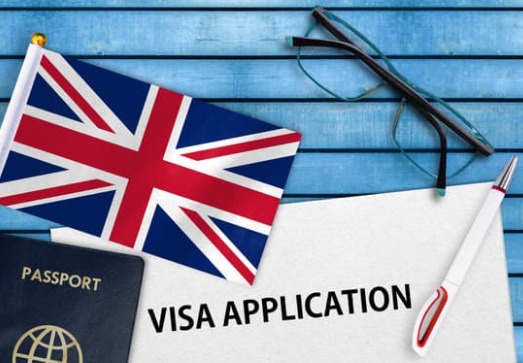You need a sponsored visa to work in the UK if you are a foreign worker. This visa allows skilled workers from other countries to work legally in jobs requiring their skills. Without it, most non-UK workers cannot get long-term jobs. If you want to work in the UK, it is important to understand how visa sponsorship works.
UK employers can sponsor a visa if they cannot find a local worker for the job. To do this, they need permission from the UK Home Office. This permission allows them to give a Certificate of Sponsorship (CoS), which is needed to apply for a work visa. However, only certain skilled jobs qualify, and they must meet salary and education requirements. This article will guide you step by step on how to get a UK job with visa sponsorship.
Understanding How Sponsored Work Visas Work in the UK
The UK has different work visas for foreign workers. Most people from outside the UK need a job offer with sponsorship to work there. The government controls work visas to protect local jobs. To get a sponsored visa, you must have the right job, earn a certain salary, and have an approved employer.
UK Work Visas Requiring Employer Sponsorship
Many work visas need employer sponsorship, and the Skilled Worker Visa is the most common. This visa, previously called the Tier 2 (General) Visa, allows foreign workers to do approved jobs in the UK. To get this visa, the job must meet the required salary and be on the UK’s skilled jobs list. Other visas that need sponsorship include:
- Health and Care Worker Visa – Designed for medical professionals, including doctors, nurses, and social care workers.
- Senior or Specialist Worker Visa (Global Business Mobility) – For employees transferred within multinational companies.
- Scale-up Worker Visa – For highly skilled professionals joining fast-growing UK businesses.
The Role of Employers in Sponsorship
UK employers need a sponsor license from the Home Office to hire foreign workers. This license allows them to give Certificates of Sponsorship (CoS), which prove that a job meets visa rules. Employers must make sure that:
- The role is eligible for sponsorship and meets salary thresholds.
- The candidate has the necessary skills and qualifications.
- The company complies with UK immigration regulations and reporting duties.
Once an employer issues a CoS, the candidate can apply for a work visa. The employer remains responsible for monitoring the sponsored worker’s compliance with visa conditions.
Step-By-Step Process to Securing a Job with Sponsorship
Employers need a license to sponsor foreign workers, and applicants must meet certain requirements. This step-by-step guide explains what to do to get a sponsored job in the UK.
Step 1: Find an Employer Who Can Sponsor You
Not all UK employers are eligible to sponsor foreign workers. To improve your chances of securing a job, target companies with a valid sponsor license.
- Search the UK Home Office list of approved sponsors. The UK government maintains an official list of licensed sponsors. This list helps job seekers identify companies authorized to hire foreign workers.
- Focus on high-demand industry sectors. Sectors such as healthcare, IT, engineering, finance, and construction have an ongoing demand for skilled professionals. Jobs in these fields are more likely to offer visa sponsorship.
- Identify job listings that offer sponsorship. Look for job descriptions that explicitly mention visa sponsorship. Many UK job portals allow filtering for jobs with sponsorship availability.
Step 2: Check Eligibility and Job Requirements
Before applying, ensure you meet the necessary qualifications and work visa criteria.
- Match your skills and experience to UK job market demands. Review the Shortage Occupation List to see if your profession is in high demand. Having experience in a listed field can improve your chances.
- Understand salary thresholds and skill level requirements. Most sponsored jobs must meet a minimum salary requirement. For Skilled Worker Visas, this is from £26,200 per year or £10.75 per hour, depending on the role.
- Many UK work visas require proof of English proficiency. Applicants may need to take an approved English test or show qualifications from an English-speaking institution.
Step 3: Prepare a Strong Job Application
A well-structured application increases your chances of securing an interview.
- Follow UK formatting guidelines. Keep the CV concise, emphasizing relevant experience, skills, and achievements.
- Clearly state how your expertise aligns with the job’s needs and UK immigration criteria.
- Ensure all information is accurate. Avoid spelling errors, vague descriptions, and overly long CVs. Tailor your application to each job.
Step 4: Apply for Jobs and Attend Interviews
Once your application is ready, begin the job search process.
- Use job portals like Indeed UK, LinkedIn, and GOV.UK. Consider recruitment agencies that specialize in visa-sponsored roles. Networking with professionals in your field can also provide opportunities.
- Employers often conduct multiple interview rounds. Practice answering common questions and be ready to discuss your visa sponsorship needs.
- Ensure the company is aware of sponsorship requirements and has the necessary license before proceeding.
Step 5: Receive a Job Offer and Certificate of Sponsorship (CoS)
Once an employer decides to hire you, they must issue a Certificate of Sponsorship.
- A CoS is an official reference number provided by the employer, confirming they are sponsoring your visa application.
- The employer must verify that the job meets salary and skill requirements and provide supporting documentation to the UK Home Office.
- The CoS must include job details, salary, and proof of compliance with visa regulations.
Step 6: Apply for a Sponsored Work Visa
Once you have your CoS, submit your visa application through the UK government portal.
- Complete the online visa application form.
- Pay the visa fee and Immigration Health Surcharge (IHS).
- Upload required documents.
- Schedule and attend a biometric appointment.
Step 7: Wait for Visa Approval and Prepare for Relocation
After submitting your application, wait for approval and start planning your move.
- Stay in contact with your employer. Prepare necessary travel arrangements and research UK work regulations.
- Arrange accommodation, open a UK bank account, and understand the cost of living. Ensure you have enough savings to cover initial expenses.
- Familiarize yourself with UK workplace expectations, employee rights, and taxation.
Common Challenges and How to Overcome Them
Getting a job in the UK with visa sponsorship can be difficult because not all employers offer sponsorship. You must also meet salary and skill requirements, and visa processing can take time. Knowing these challenges and preparing for them can increase your chances of success.
Limited Employer Sponsorship Availability
Not all UK employers are licensed to sponsor foreign workers, making it crucial to target the right companies.
- Use the UK Home Office list of licensed sponsors to identify companies authorized to hire foreign workers.
- Industries such as healthcare, IT, engineering, and finance have a greater need for skilled workers and are more likely to offer sponsorship.
- Connect with professionals in your field through LinkedIn, job fairs, and industry events. Engaging with UK-based recruiters can also help identify sponsorship opportunities.
- Use job boards that allow filtering for visa sponsorship roles. Websites like Indeed UK, LinkedIn, and GOV.UK Jobs often indicate if an employer offers sponsorship.
Meeting the Salary and Skill Threshold
Most UK work visas require applicants to meet minimum salary and skill level requirements. Some roles have specific thresholds that may make sponsorship more competitive.
- Improve your qualifications by obtaining industry-recognized certifications or additional training. This increases your competitiveness in the job market.
- The UK government provides a list of high-demand jobs with lower salary requirements for visa applicants. If your profession is on this list, you may qualify for a visa even with a lower salary offer.
- Research standard salary rates in your industry and be prepared to negotiate. Highlight your expertise and how you can add value to the company to justify a higher offer.
- If you don’t meet Skilled Worker Visa requirements, explore other visa options, such as the Health and Care Worker Visa or Graduate Visa, which may have different salary conditions.
Visa Processing Delays
Visa applications can take several weeks or even months, depending on processing times and potential backlogs. Delays can disrupt travel plans, job start dates, and relocation arrangements.
- Submit your visa application as soon as you receive your Certificate of Sponsorship. Early application reduces the risk of last-minute delays.
- Incomplete or incorrect documents can lead to processing delays or rejection. Double-check visa requirements and provide all necessary paperwork.
- Keep in contact with your employer and prepare for possible delays. Have a backup plan for accommodation, finances, and job start dates in case of unexpected processing times.
- The UK government offers faster processing options for an additional fee. If time-sensitive, check if priority services are available for your visa type.
Frequently Asked Questions (FAQs)
How Long Does the Visa Application Process Take?
Standard processing takes 3 to 8 weeks, but priority services are available for faster processing.
Can my Family Move with Me if I Get a UK Work Visa?
Yes, dependents (spouse and children) can apply to join you under your work visa.
Do All UK Jobs Require Visa Sponsorship?
No, but most skilled jobs do. Some visas, like the Graduate Visa, allow work without sponsorship.
Can I Switch Jobs With a Skilled Worker Visa?
Yes, but your new employer must be a licensed sponsor and issue a new Certificate of Sponsorship (CoS).
Conclusion
To get a sponsored job in the UK, you must understand the visa process, find the right employers, and meet the requirements. Searching wisely, improving your skills, and sending a strong application can help you succeed.
Getting a sponsored job in the UK can be hard because few employers offer sponsorship, and there are salary rules and visa delays. But you can improve your chances by looking for in-demand jobs, learning new skills, and preparing your documents properly.






